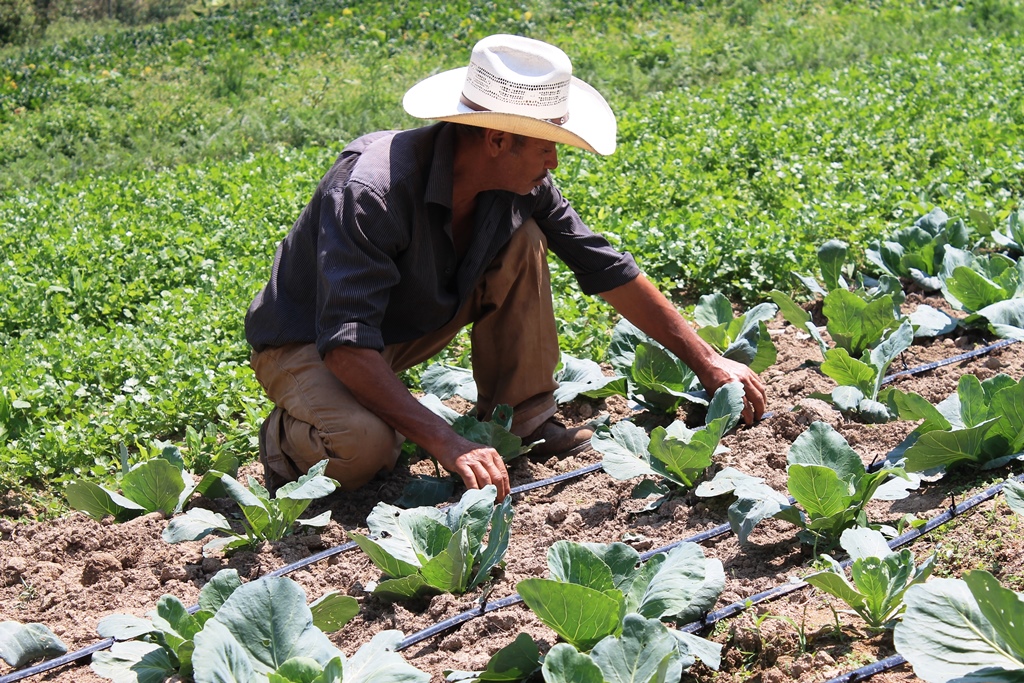Adaptation Fund Delivers Climate Finance Readiness Workshop in Honduras
for Latin America and Caribbean Region
Workshop Focusing on Full Project Cycle, Projects in Climate Vulnerable Region
The Adaptation Fund is undertaking an outreach effort in Honduras this week to help build the capacity of organizations throughout Latin America and the Caribbean in developing effective adaptation projects to cope with the effects of climate change.
Co-hosting a Regional Climate Finance Readiness Workshop in Tegucigalpa, Honduras from June 7-9 with its recently accredited regional implementing entity based in Honduras – the Central American Bank for Economic Integration (CABEI) – the Adaptation Fund will provide presentations on its Readiness program, the accreditation and project development, submission and review processes for implementing entities, mainstreaming gender, environmental and social considerations into projects, as well as one-on-one readiness ‘clinics’ with participants. The Fund will further encourage its accredited implementing entities to share lessons and best practices with the accreditation and project development processes, while providing guidance on the full cycle of steps from project identification, development, completion to evaluation.
The opening ceremony (June 7, 9-10:30 a.m. CST) will be livestreamed by CABEI with an agenda, supporting information and summary videos available here.
The Latin America and Caribbean Region is particularly vulnerable to climate change, and faces increased rainfall variability, extreme storm intensity, droughts, floods, rising seas and glacial melting. The Adaptation Fund is helping countries in the region build their capacity to adapt to these effects, while protecting livelihoods and the readiness of the populations.
“We hope attending organizations and national representatives come together to share important experiences and knowledge from developing projects at the country level, as well as keys to becoming an accredited implementing entity so that we may reach more vulnerable communities with climate adaptation solutions,” said Adaptation Fund Board Chair Naresh Sharma.
With 14 currently approved concrete projects across 13 countries and another five endorsed projects that aren’t yet fully developed, the Adaptation Fund is funding work in the region that encompasses coastal zone management, sustainable agriculture and land management, disaster risk reduction, water and food security, and ecosystem conservation.
“Latin America and the Caribbean make up 27% of our total number of projects, so it’s a critical area in terms of climate change adaptation needs,” added Adaptation Fund Manager Marcia Levaggi.
The three-day workshop includes a site visit to the Adaptation Fund’s US$5.62 million water management adaptation project in Honduras aimed at reducing climate change risks on water resources and vulnerability of the urban poor in Tegucigalpa and the upper Choluteca watershed by strengthening institutional structures and safeguarding water supplies.
Water scarcity has been an issue in Honduras through degraded watersheds affected by deforestation and water pollution, increasing weather variability and effects from climate change that have also resulted in extreme rainfall and damaging flash floods.
Some have caused landslides in recent years and open health issues on streets with no adequate drainage in place. The project has both improved drainage by installing climate-proof ditches alongside roads, and innovative rainwater harvesting systems on rooftops of endangered homes resting precariously on hillsides. “My family and me felt a little afraid to live here because of the landslides,” said Carlos Sandoval, a resident and project beneficiary in the Campo Cielo District. “We couldn’t afford to move or buy wood to move the house further back. The channeling of rainwater helped a lot. The water doesn’t soak into the ground. The land hasn’t moved.”
During rain events water is further directed to a storage tank at a local school, where it is used for cleaning and gardening.
The Honduras project also provides technical assistance and capacity building for area farmers through water-saving measures such as drip irrigation techniques. “We really lack water because this year there was practically no rainfall at all,” said Santo Benedito Gonzales, a farmer in the Wasarique River Basin, last fall. “The drip irrigation system is a big deal because we save time and we are saving more water.”
José Servellón, a farmer in the Guacerique River Basin, said the system has also led to better production yields. “This is a good irrigation system and it has helped me a lot,” he said. “It’s working well. It’s about economizing water.”
Saving water is key to the overall project. “Honduras is one of the most vulnerable countries facing climate change,” said Sonia Suazo, National Project Coordinator for UNDP/MiAmbiente. “The project of the Adaptation Fund in Honduras is oriented towards securing the production of water for the capital city and surrounding area where more than two million people live. The water of Tegucigalpa is provided by a forest corridor composed of protected areas. We must protect these forest areas so that the capital and the vulnerable neighborhoods can have water.”
Click here to view a video on the Honduras project.
The Adaptation Fund will also host Climate Finance Readiness Workshops July 13-15 in Washington, D.C.; Aug. 23-25 in Madhya Pradesh, India; and Sept. 6-8 in Casablanca, Morocco.
ABOUT the ADAPTATION FUND
Since 2010, the Adaptation Fund has committed US$338 million to support 52 concrete, localized climate adaptation and resilience projects in 46 countries, with 3.57 million direct beneficiaries.
Communications: Matthew Pueschel, mpueschel@adaptation-fund.org or +1 202 473 6743
Attachments
| Attachment | Type | Size |
|---|---|---|
| Press release June 7, 2016 Adaptation Fund Delivers Climate Readiness Workshop in Honduras for Latin America and Caribbean Region | 120 KB |



